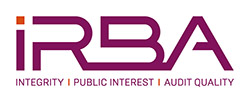Policy regarding Postponements
IRBA’S GENERAL POLICY REGARDING POSTPONEMENTS OF DISCIPLINARY HEARINGSFor the sake of good order and transparency, and for the assistance of registered auditors and their advisors, the IRBA publicises hereby its policy regarding the postponement of Disciplinary Hearings. The policy will be applied generally unless the respondent can show good cause why in the circumstances of a particular case it ought not to be applied. The IRBA recognises that the question of entitlement to a postponement is one of procedural fairness (fair administrative process). A respondent has the right to apply for a postponement at law and in terms of the Constitution. The application for postponement might or might not be successful. The IRBA appreciates that in some instances there are compelling reasons which show that it is fair that a matter be postponed; in others it is not in the interest of the administration of justice that a matter be postponed. The IRBA will apply these principles of procedural fairness to the facts of the particular case. It has become necessary to adopt this policy because it has become too expensive, cumbersome and time consuming to continue dealing with postponements at the last moment, and on an ad hoc basis. We have been met with an increasing number of frivolous and mala fide requests for postponements. Where a matter is postponed where postponement was not truly justified, the difficulty and expense incurred in convening a hearing has been wasted. The expense includes the expense of flying in disciplinary committee members from different parts of the country to attend the hearing. Time is also wasted this way, causing matters which should be heard expeditiously to become needlessly and unacceptably protracted. Certain respondents believe that a generic ‘sick note’ faxed through on the morning of the hearing – without giving any acceptable reasons as to why the respondent is too ill to attend – is sufficient to afford a postponement, without due regard for the time and costs wasted as a result. Accordingly, to address these problems, IRBA seeks to explain in advance to all potential respondents that this policy will be applied on the basis set out above and below, to the question of postponements of disciplinary hearings. The unavailability of your preferred counsel to appear on the day of the hearing will not afford a basis for a postponement. This is in line with the approach taken by the Courts and by other tribunals. The application for postponement must be in writing and the evidence on which it is based must be set out in a sworn affidavit. The Director: Legal should be notified of the proposed application for postponement as well as full reasons for it at the first available opportunity that you learn of the circumstances that in your view necessitate an application for a postponement. This is necessary as the Director: Legal must decide whether it is appropriate for her to grant the Application (and this will depend on the grounds advanced, and the period of time until the date of the scheduled Hearing), or whether the postponement application should be heard by the Disciplinary Committee itself. If it is to be heard by the Committee itself, a further decision needs to be taken as to whether the Committee, the pro forma complainant, the respondent and his or her representative need to be present in person, to present and hear argument on the application, or whether the Committee can hear the application by telephone, video, or similar conference. (This too will depend on the grounds advanced for the postponement and the period of time until the date of the scheduled hearing). In granting the application for postponement consideration will be given, inter alia, to the following:
Under no circumstances should you simply assume that a postponement will be, or has been, granted unless this is specifically communicated to you. The IRBA is careful not to schedule hearings which might co-incide with a respondent’s religious holy days. However, in the event that a hearing is inadvertently scheduled on a religious holiday, we expect you to raise this immediately you are notified of the date. The excuse that you only realised shortly before a hearing that it falls on a religious holiday is not acceptable. We expect adherents of religious faiths to be fully aware of the holy days which they observe well in advance. Where a date has been set by agreement with you or your legal representative, anything else that arises after the date has been confirmed will not generally be, of itself, an excuse for a postponement. For example, we would not expect you to schedule an important social event, or non urgent surgery for the date of the hearing. The IRBA will not accept vague and general ‘sick notes’. These are not generally a form of evidence that will be accepted by the committee in an application for a postponement. Better evidence will be required. At least, the doctor must be available to answer questions about the Respondent’s inability to attend. The respondent is also required to inform the doctor at the time of the consultation that he (the respondent) is expected to appear before a Disciplinary Committee during the period covered by the ‘sick note’, that the doctor will be required to provide evidence regarding the status of the respondent’s health for the purposes of the intended application for postponement and that the doctor has the respondent’s consent to provide this evidence. It might be sufficient that the doctor is examined by telephone, but on occasion it could be necessary for him or her to appear before the Committee in person to answer questions under oath. The unavailability of the doctor to be questioned could prejudice the application. If an application for a postponement is granted, the respondent will ordinarily be required to pay the costs incurred by the IRBA as a result of the postponement, albeit that these may usually only be imposed at the end of the hearing.
|





